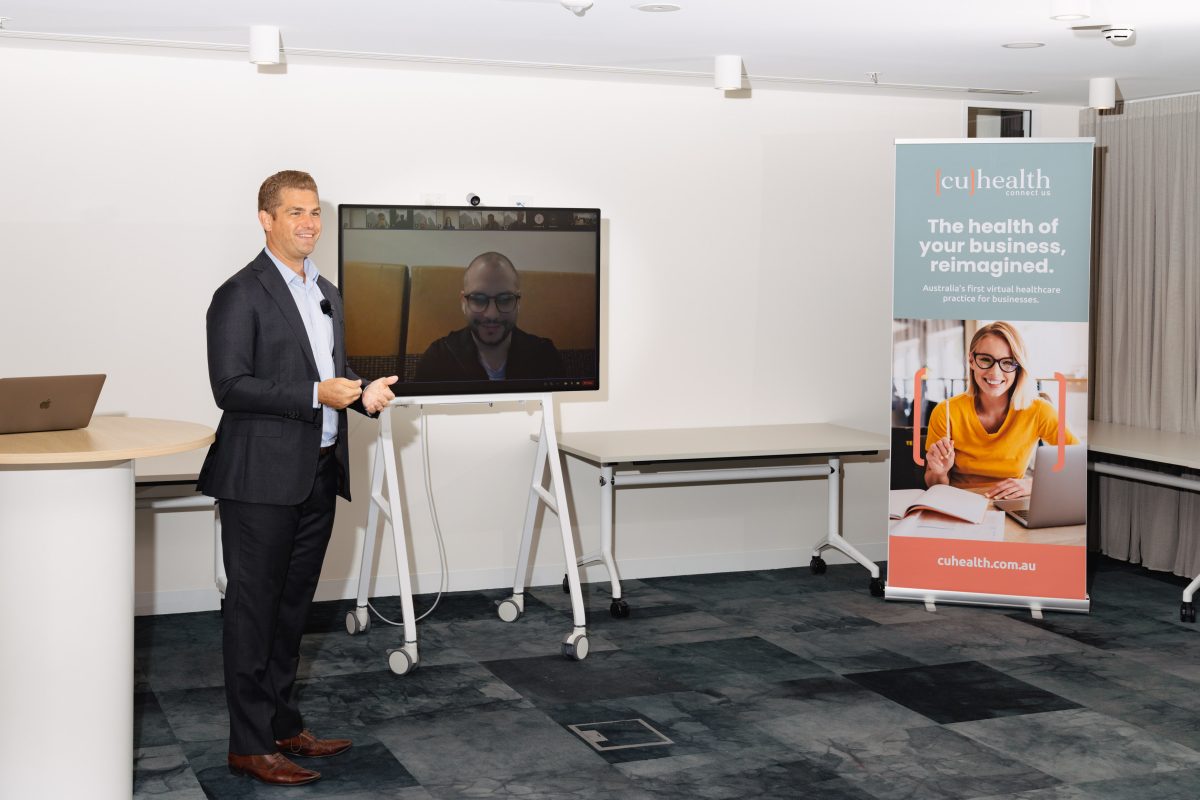
Local clinicians at Strategic Psychology say looking after your mental health is just as important in the workplace as it is at home. Photo: Rohan Thomson.
There’s no doubt about it – some jobs are more stressful than others.
It might be the nature of an industry, culture within it or demand placed on its workers. Whatever the cause, stress-related resignations are all too common, especially in high-volume industries such as strata and building management.
Managing director at Strategic Psychology, Nesh Nikolic says mental health concerns across all industries do not disappear the moment a staff member arrives at work.
“Human beings play a number of roles like the friend, the parent and the team member,” Nesh says.
“The individual is in every one of these roles and their mental health doesn’t discern between them any more than a broken leg would. Recognising this is a huge part of making sure your workplace is psychologically available and retains quality staff.”
Trust between staff members and their teams is important, Nesh says, and it takes time to build connections and confidence in one another. Staff should feel able to show vulnerability, communicate openly and have their views heard without fear of repercussion.
“Being heard doesn’t necessarily mean being agreed with, but it does mean respecting personal beliefs and listening carefully to ideas, feedback and concerns.
“Try to get a sense of what’s important to your people and build a positive environment around them, rather than forcing staff to adapt.”
When it comes to recognising signs of struggle, it’s all about knowing your people and keeping an eye out for change.
“Everybody reacts differently to stress. In an ideal world they feel comfortable enough to let a colleague or supervisor know, but there will always be staff members who keep things to themselves,” Nesh says.
“Change can be an important indicator to look out for. If a staff member is usually bright and bubbly but suddenly begins to withdraw, that’s a clear sign to check in.”
So, you’ve spotted a colleague who might be having a hard time. Your company has the right systems in place, but your colleague doesn’t seem to be accessing them. What next?
“Just start by asking how they are,” Nesh says.
“The key here is being receptive and listening well. We tend to jump to problem solving right away, but sometimes the shortest route is listen first, fix later.
“Most importantly, take the time to check in a few days later. This shows care and interest in their wellbeing, which often makes all the difference.”
Kirrily Gregerson from Vantage Strata, an industry leader in strata, facilities and building management across the ACT and NSW, says the biggest issue facing strata managers right now is “the level of client expectation”.
“The majority of our clients expect to hold meetings in the evening,” says the employee experience manager. “When you work 12-plus hour days in a position of such demand, burnout is inevitable.”

Vantage Strata recently partnered with virtual provider CU Health to offer free online medical care for staff. Photo: Vantage Strata.
Vantage Strata combats this worrying trend by providing extra administrative support for managers to shift some of the load. The company has also recently partnered with Australian corporate health provider, CU Health.
“CU Health makes it far easier to look after our health and wellbeing around our work schedule. Online appointments can be made during work hours with GPs, nurses, psychologists, dietitians and performance coaches, and it’s all free for employees,” Kirrily says.
“We’re establishing a comprehensive mental health and wellbeing policy to support our team and reduce stigma around mental health. We also back our staff in setting sustainable boundaries for after-hours meetings, in a way that meets client needs and ensures employees have enough downtime outside of work hours.
“It’s difficult to find the perfect balance but we are focussed on improving client relationships wherever we can, and a big part of that is keeping our team’s mental health in check.”
Vantage Strata director and co-founder Christopher Miller says overwhelming workloads, tight deadlines and unpredictable encounters with disruptive clients can trigger a myriad of serious mental health issues.
“Extreme client demands need to be curbed and regulated. It is important to remember that respect is a two-way process and extends to everyone involved,” he says.
“Strata management companies must not shy away from enforcing boundaries, investing in mental health support and organising regular check-ins.
“This fosters a more positive work environment that works to improve employee wellbeing and ultimately benefits our bottom line.”





















